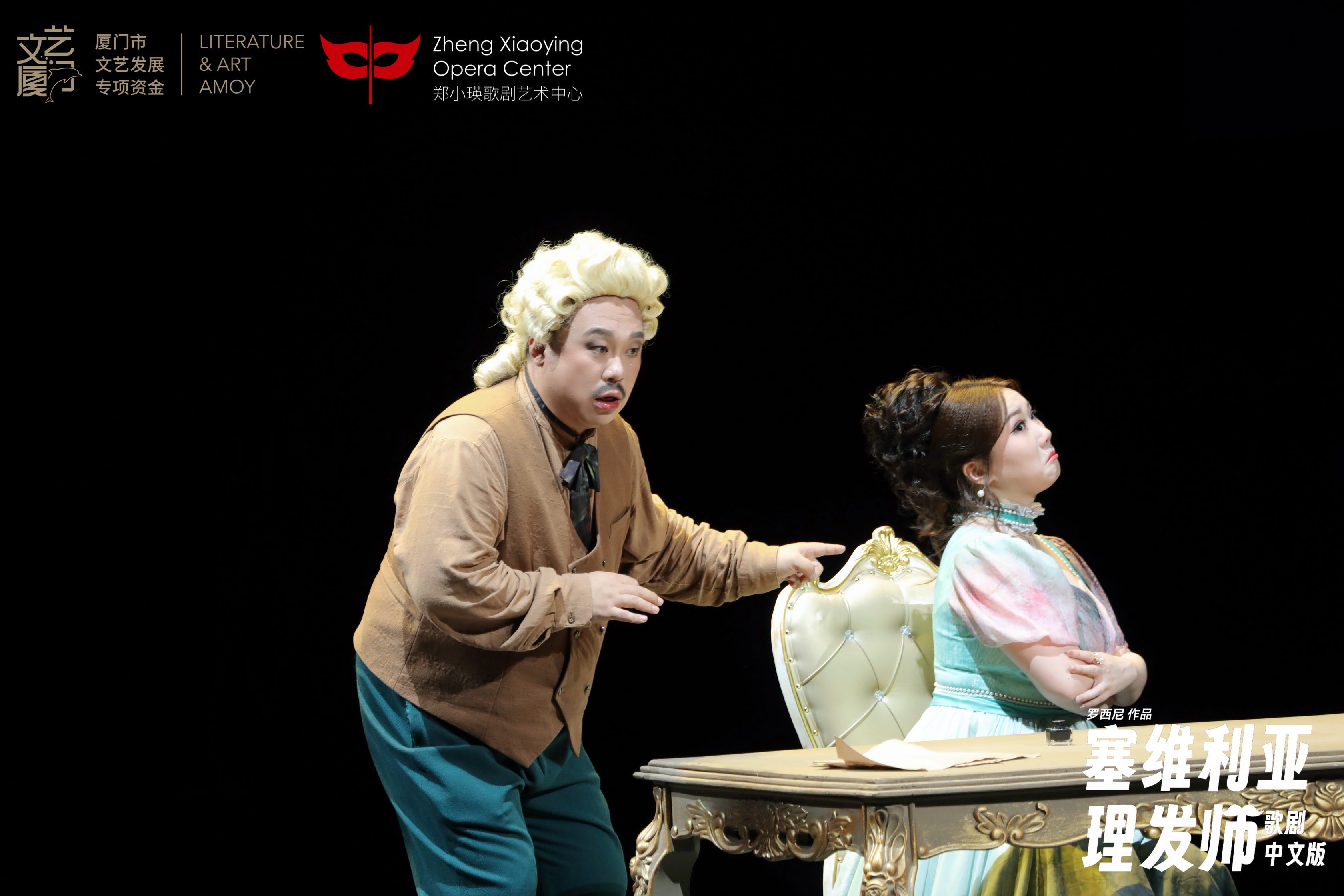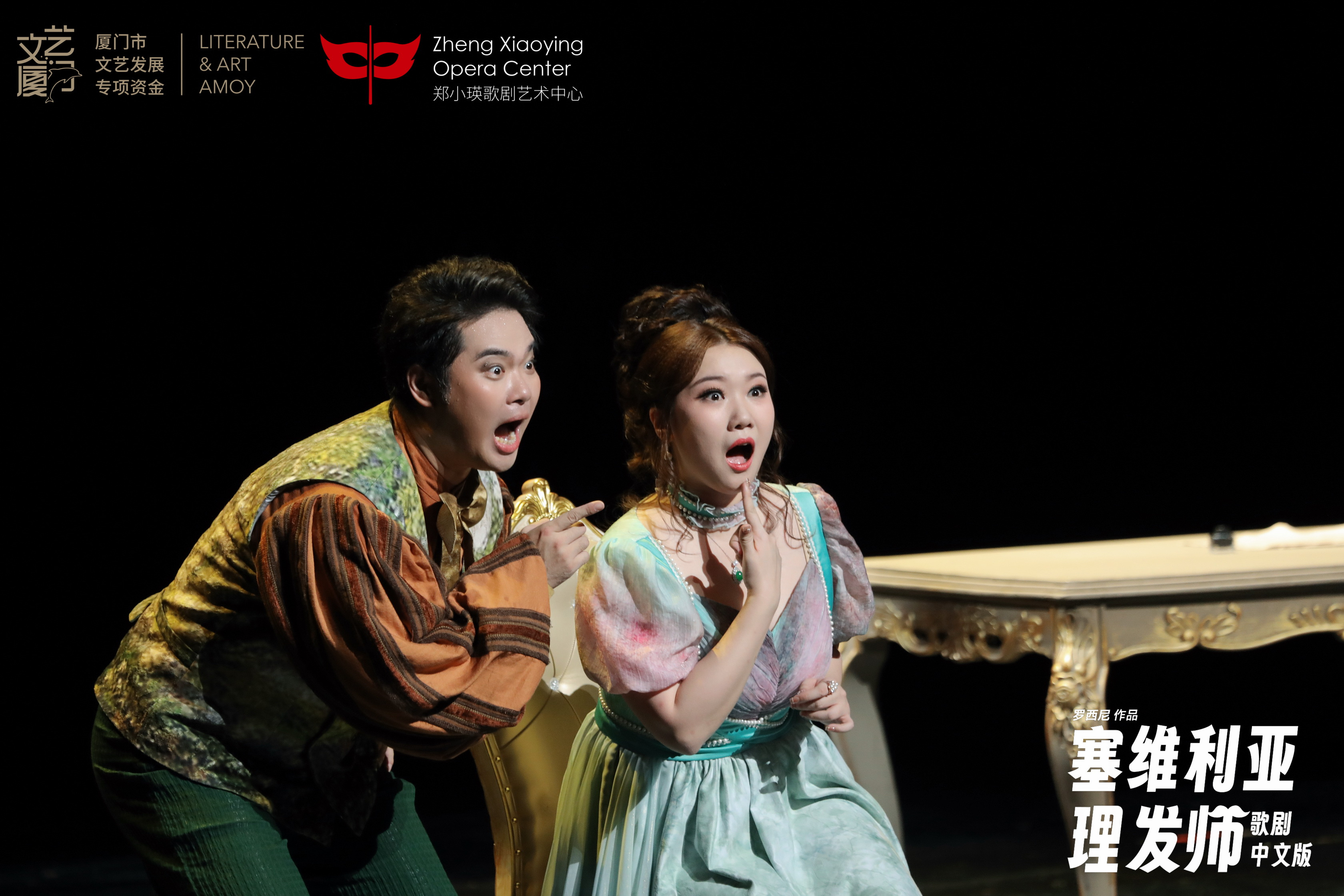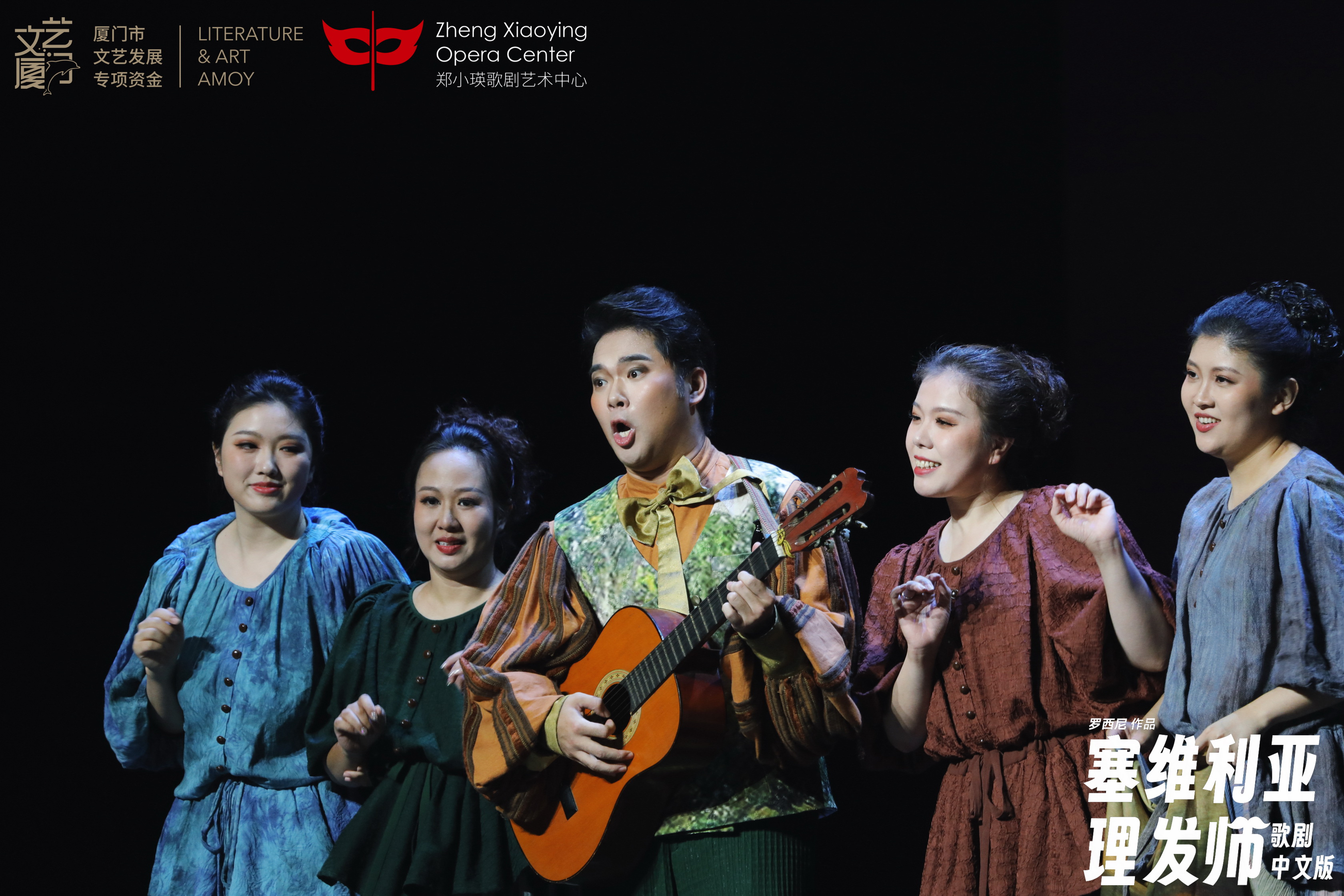All material found in the Press Releases section is provided by parties entirely independent of Musical America, which is not responsible for content.
Press Releases
A Triumphant Return: Zheng Xiaoying Conducts The Barber of Seville in Chinese at Kah Kee Theatre
At 96, maestro Zheng Xiaoying is still redefining what’s possible—not just for age and artistry, but for the future of opera in China. On June 8th at Xiamen’s Kah Kee Theatre, Zheng took the podium once more to conduct a full Chinese-language performance of Rossini’s beloved opera The Barber of Seville. Staged by the Zheng Xiaoying Opera Centre, in collaboration with local ensembles, the production was sung entirely in Mandarin, with newly translated dialogue replacing the original Italian recitatives.

In an era where Western operas are typically performed in their original languages with surtitles, Zheng remains a pioneering advocate of “singing Western operas in Chinese”—a concept she has championed since her time as chief conductor at the China National Opera. Her mission is clear: make opera truly accessible to Chinese audiences without sacrificing musical or dramatic integrity.
This Barber was the second major comic opera the Centre has staged in translation in recent years, following last year’s riotous Marriage of Figaro. Much like its predecessor, the Chinese-language Barber proved that opera buffa thrives in its mother tongue—even if that tongue has changed. Jokes landed with precision, and linguistic nuances critical to comic timing came alive in ways subtitles simply cannot deliver.

Baritone Li Ao, a winner of Plácido Domingo’s Operalia competition, delivered a standout performance as Bartolo—vocally commanding and comically brilliant. His entrance brought the production into full swing. Opposite him, soprano Dai Ziyi dazzled as Rosina, navigating the intricacies of Mandarin diction and florid bel canto lines with equal flair.
The cast featured an impressive array of local talent, drawing from conservatories and opera houses across Fujian. Their contributions underscore Zheng’s vision: to cultivate a sustainable, homegrown operatic culture rooted in Chinese language and voices.

Far from a novelty, this Barber revealed the transformative power of translation—not as compromise, but as creative liberation.





 FEATURED JOBS
FEATURED JOBS

 RENT A PHOTO
RENT A PHOTO


